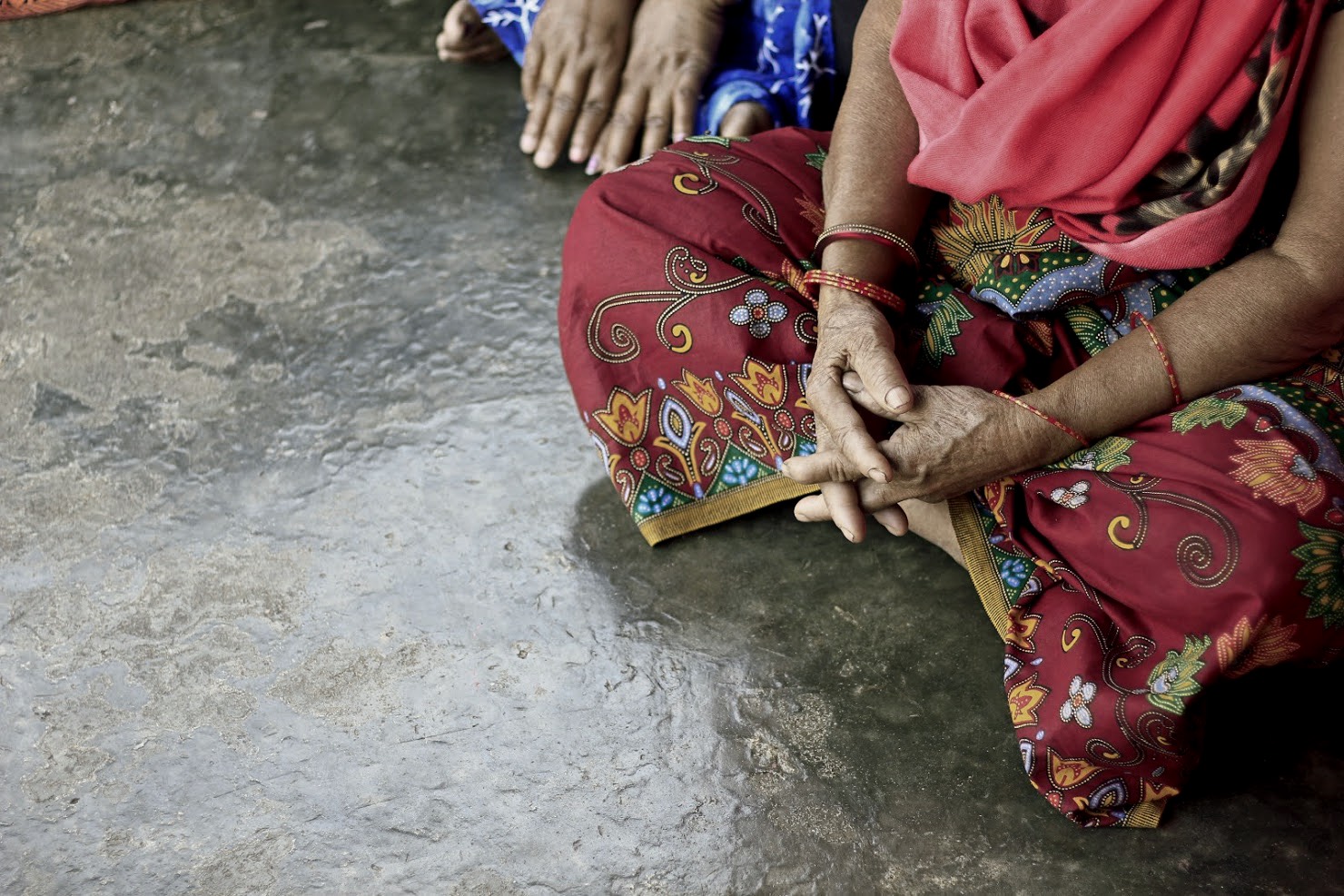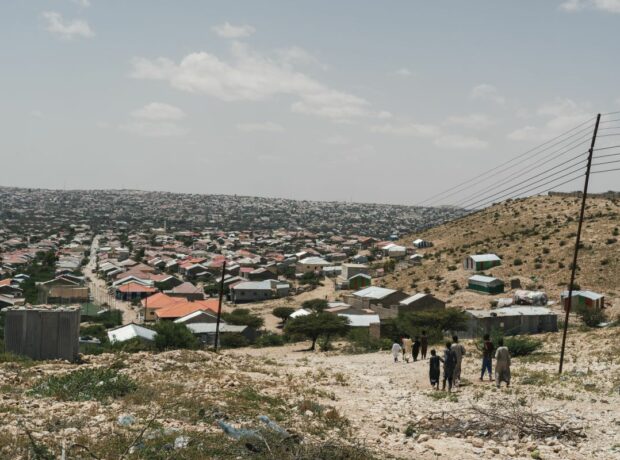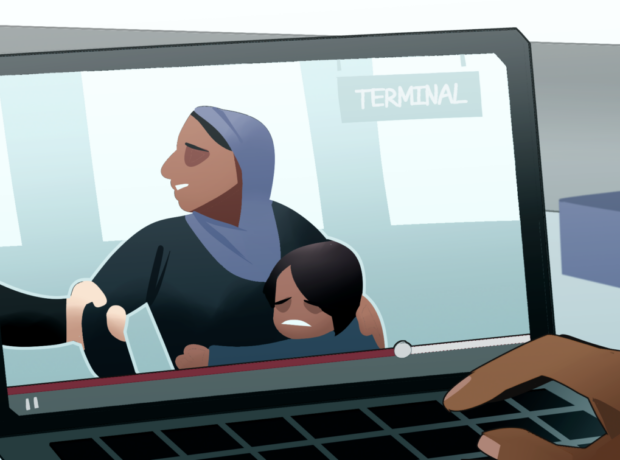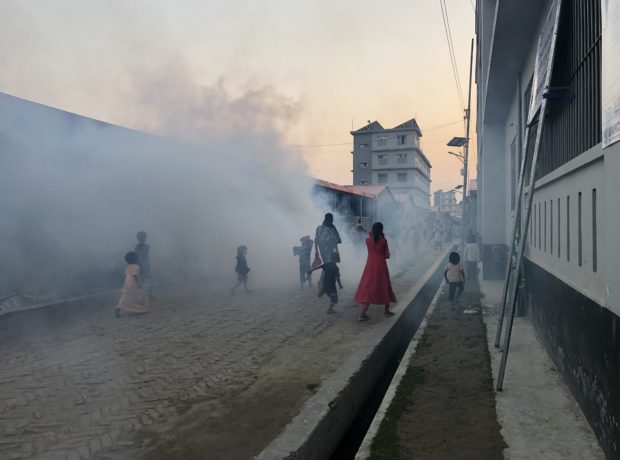Nepal’s bloody decade of civil war made it a world leader in daily abductions. Torture and murders committed by the army, police and Maoist rebels left 17,000 people dead or missing. But 12 years on Lucas Font finds the perpetrators of war crimes are going unpunished, as victims and relatives of the disappeared lose hope of justice.
Krishna Adhikari sits on a plastic chair in the courtyard of his home in Madi, in the jungle district of Chitwan, 93 miles (150km) southwest of Kathmandu.
Next to him, leaning on the side of the chair, rests a metal crutch, an inseparable companion since Adhikari was the victim of the bloodiest attack by Nepal’s Maoist rebels during the country’s 10-year civil war.
That day, June 6 2005, Adhikari was one of more than 100 passengers riding on a crowded bus heading to Bharatpur, the district capital.
First I heard a small explosion, followed by a deafening noise that knocked me unconscious,” he says.
“When I woke up, I was in the military hospital of Chaunni, in Kathmandu.”
Targeting soldiers, the Maoist insurgents (who had previously avoided causing mass casualties among civilians) ambushed the bus with a roadside bomb, killing 38 and wounding 72 – almost all civilians.
Adhikari was riding on the roof of the over-crowded bus, which was thrown 30 feet in the air. The explosion broke both his legs, fractured four vertebrae and displaced seven of his ribs.
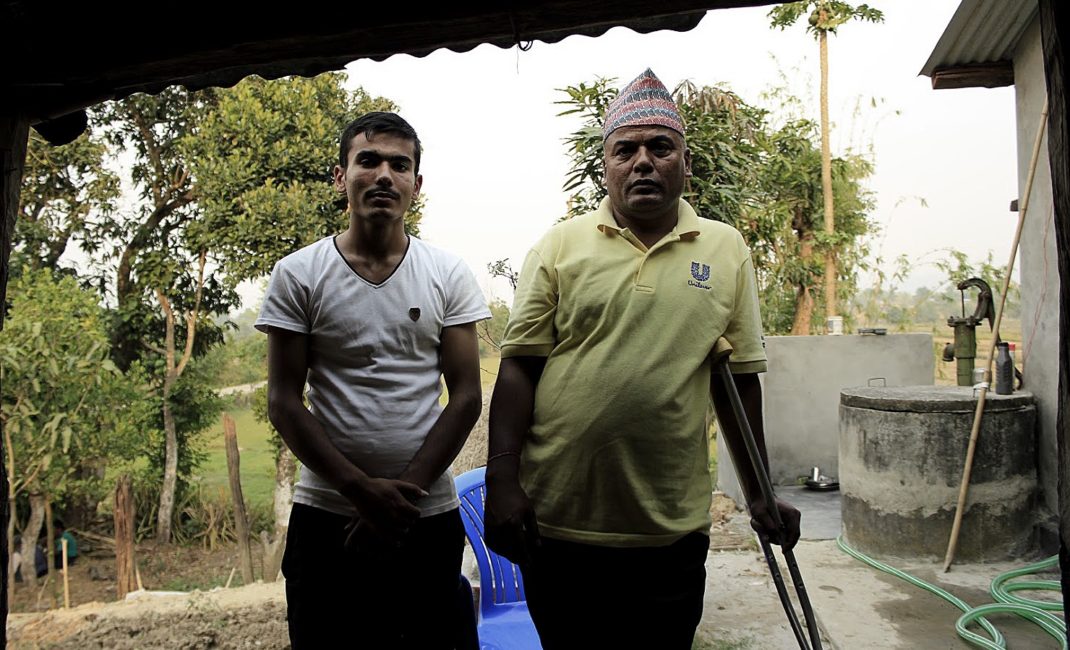
Krishna Adhikari and his son Sagar Adhikari at their home, in Madi, in the jungle district of Chitwan, 150 km southwest of Kathmandu.
A year later, in November 2006, the Maoist rebels and the Nepali government signed a peace agreement pledging to investigate the war crimes committed and to provide justice for the victims.
But 12 years on, that justice is yet to arrive.
Adhikari says: “We know who the culprits are, but they’re still at large. Many of the victims of the attack in Madi have given in to pressure from the Maoists and have accepted money in exchange for their silence.
We don’t want money, we want justice,” adds Adhikari, who claims to have received criticism and threats from his own community for not accepting the bribe.
*****
One night the military came to Lila Lopchan’s home, taking away her husband claiming they “had a job for him”.
Lopchan never saw her husband again and, 16 years later, she still doesn’t know what happened to him.
She says: “I went six months without asking about my husband for fear of being arrested. Then they told me he was killed in a gunfight between the Maoists and the police, but if he had, they would have shown me the body.”
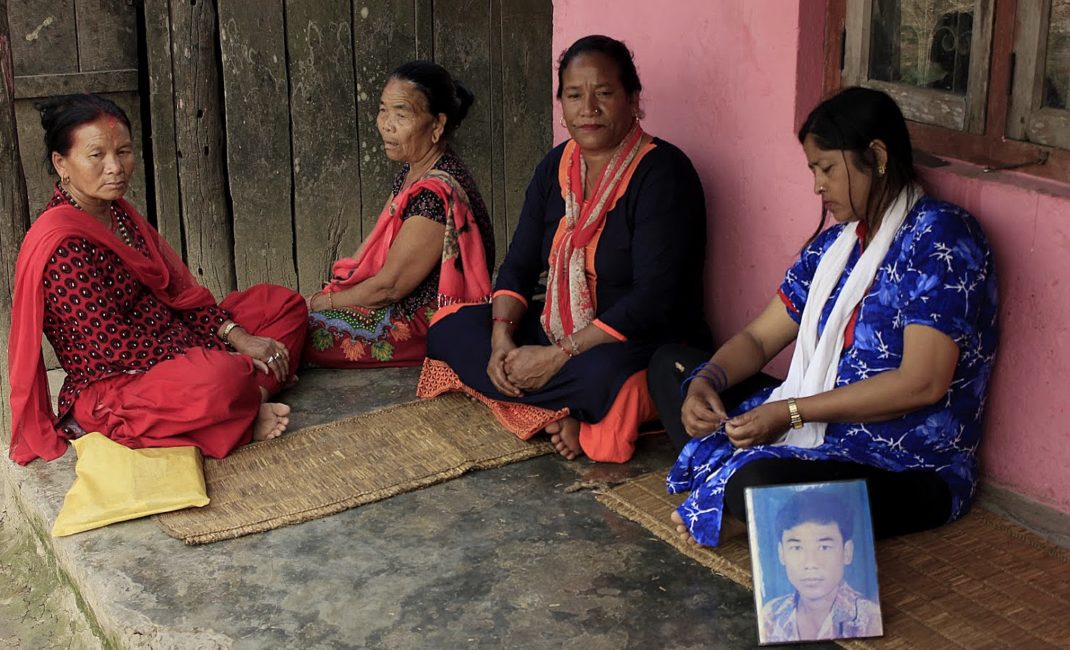
Lila Lopchan, right, shows the portrait of her disappeared husband as she sits with other women from her village who also lost their relatives in the war.
Lopchan is one of many women in her village who lost children and husbands during the conflict.
Many of them depended on their husbands’ work to survive and are now facing an economic struggle after the government granted them compensation of one million rupees (£7,000/$9,000), which they claim is insufficient.
The hope of reuniting with their husbands has long since been lost, along with the hope of seeing the guilty behind bars.
A bloody, decade-long war
The Maoist guerrillas, led by Pushpa Kamal Dahal (known as “Prachanda”), declared Nepal’s “people’s war” in 1996, aiming to abolish the monarchy that had ruled over the country for more than 200 years.
Seven simultaneous attacks across six districts of Nepal sparked a conflict that lasted more than 10 years and claimed the lives of more than 17,000 people.
The Maoists wanted to end India’s domination and influence in Nepal, drive foreign investors out of major industries, draft a new constitution that would end the privileges of the monarchy and castes, and distribute land equitably.
The government responded by sending police reinforcements to insurgent areas to fight a guerrilla group that was growing in popularity among poorer communities.
Deaths and disappearances of civilians, as well as rape, torture and abductions, became commonplace and were repeatedly condemned.
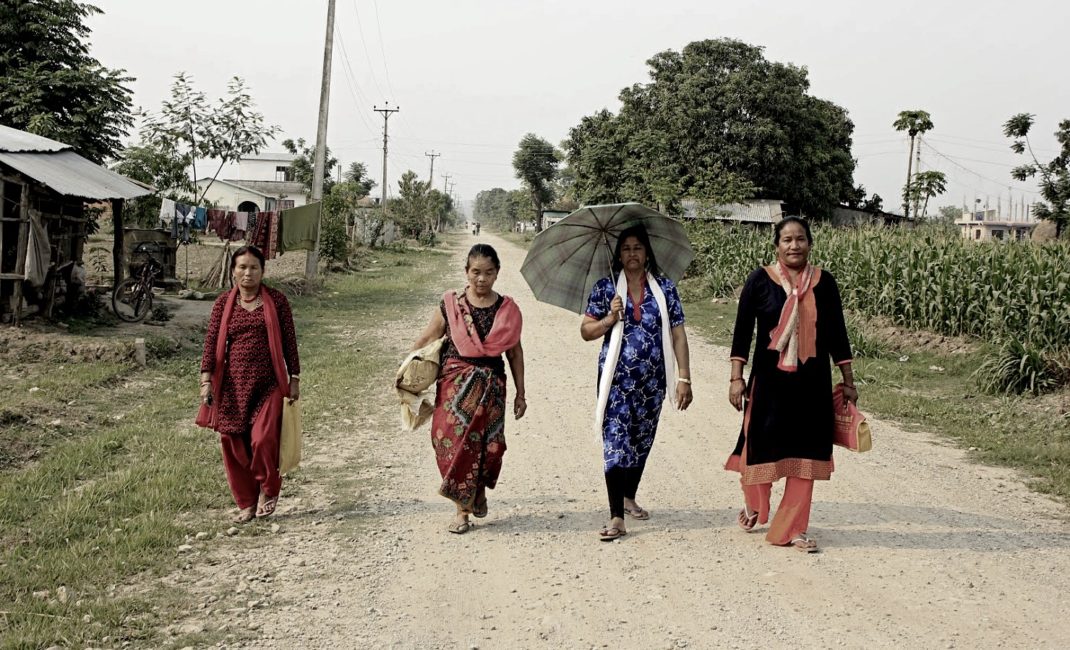
Lila Lopchan walks with other women from her village who also lost their husband and children during Nepal’s civil war.
The struggle for transitional justice
The country’s new executive reached a peace agreement with the Maoists at the end of 2006 and, following international pressure to clarify the crimes committed by both sides, two commissions were approved in 2014: the Truth and Reconciliation Commission (TRC) and the Commission for the Investigation of Enforced Disappeared Persons (CIEDP).
More than 63,000 complaints have been collected between the two commissions, but to date not one of these complaints has been resolved due to “scarcity of funds”.
In 2014 the UN Office of the High Commissioner for Human Rights denounced the controversial act that created the commissions, which allows them to grant amnesties to those allegedly guilty of crimes against humanity, in violation of international human rights law.
This was echoed earlier this year by Human Rights Watch warning that: “The current legal framework allows for the possibility of amnesties and effective impunity for gross human rights violations amounting to grave crimes under international law, and the broad authority to facilitate reconciliation, including without the informed consent of the victims and their families.”
HRW says the two commissions have gathered a lot of documentation but claims their work is “uncoordinated, non-consultative and opaque”, adding: “Where the commissions have made efforts to work effectively, they face problems due to a lack of sufficient human and financial resources.”
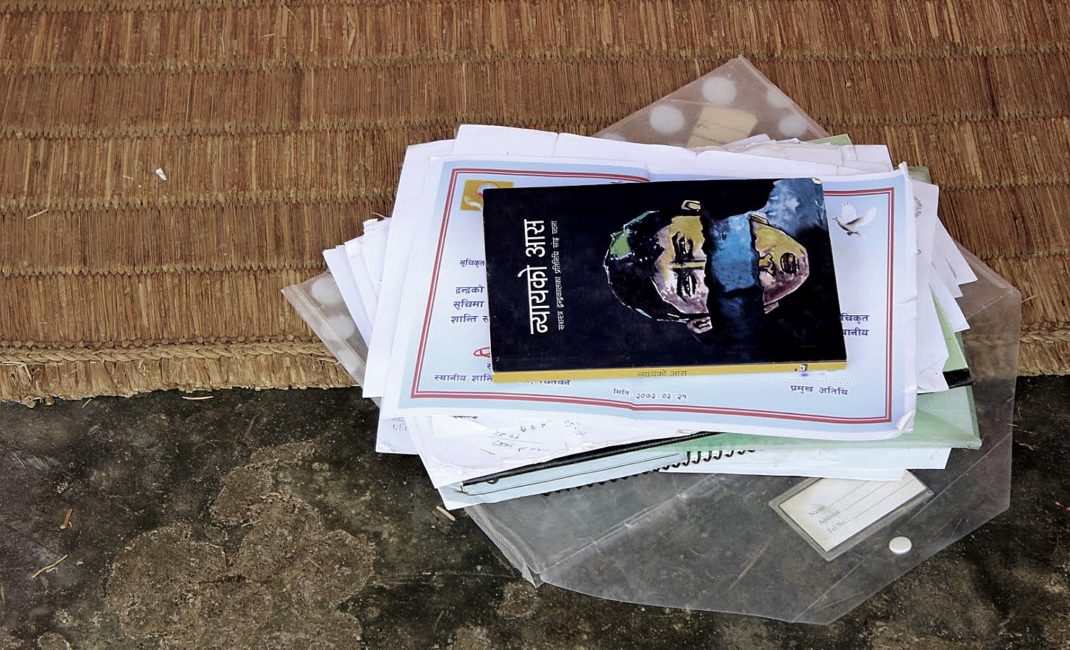
Documents piled on a bamboo mat. Victims face a bureaucratic struggle to obtain justice.
Last year the Truth and Reconciliation Commission established an office in each of the country’s seven provinces, each office taking 1,000 cases to start preliminary investigations.
But progress is slow and hindered by the commission’s lack of resources and adequate investigative capacity for crucial tasks such as exhuming mass graves or preserving evidence.
In June, the Nepali government presented a draft for amending the 2014 act that governs the two commissions.
This too was met with criticism from Amnesty, together with the International Commission of Jurists and TRIAL International, who made a series of recommendations, including the appointment of victims’ representatives among the commissions’ members to ensure fair and impartial investigations.
Janak Raut, president of the Conflict Victims Society for Justice (CVSF) – Nepal, says:
The work of the commissions has been completely inefficient to date. They don’t have enough power and they are under political pressure to delay the investigations. We are tired of promises, we need justice.”
But both the ruling Nepal Communist Party and the Nepali Congress opposition are turning a deaf ear to the protests of victims and international bodies, while many alleged perpetrators of the crimes have been given promotions within the military and police.
What comes next?
The mandate of the commissions, which expired in February (2018), was extended for one more year, but the victims’ associations are not optimistic.
Their pursuit of answers and justice is weakened as many of the relatives that remain settle for compensation funds. Determined individuals, like Krishna Adhikari, are fewer and fewer.
“They spent three years without doing anything. The Truth and Reconciliation Commission was extended for a year but I am sure they will not do anything in our favour,” says Adhikari.
They haven’t opened the file of our case yet. We are in regular contact with the officer of regional area but they are not doing anything.”
His only option now is to sit and wait for justice to be done, in the courtyard of his home, his metal crutch always nearby.
- For content like this direct to your inbox once-a-month subscribe here.
